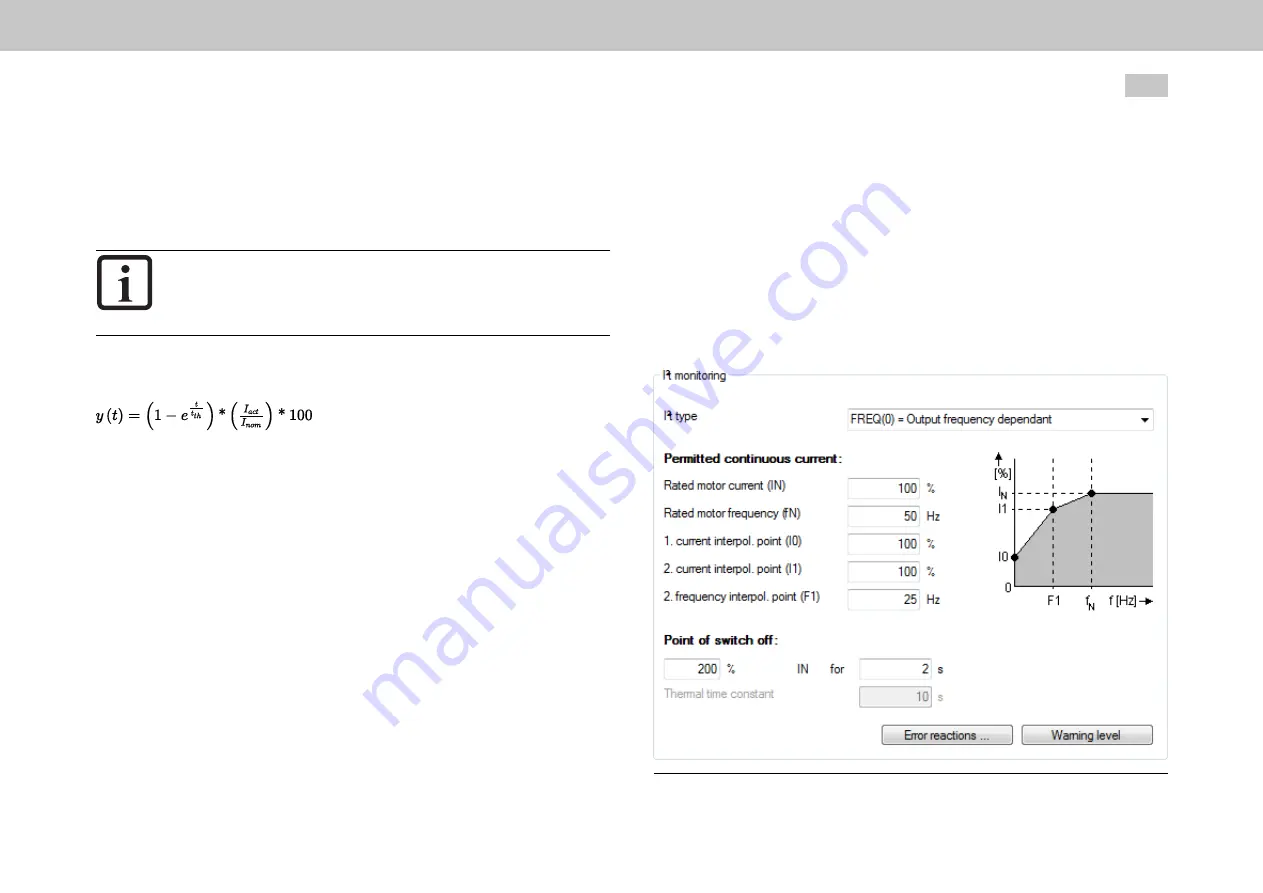
If the I
2
t method is set to "THERM(1) = Thermal time constant-dependent", all settings
apart from the thermal thermal time constant are disabled.
If the integrator exceeds its limit value, the error E-09-01 is triggered. The current
value of the integrator is indicated in P 701[0] - Mon_ActValues.
NOTE
The limits are specified in servo drive as percentages of the rated
quantities (e.g. current, torque, speed,...) of the motor. The defaults
relate to 100 % of the rated quantities.
Calculation of capacity utilization via exponential function with thermal
time constant of motor:
Setting of I
2
t type:
P 735[0]
= “FREQ(0)=Output frequency-dependent": Moog - specific i(f)
evaluation
P 735[0]
= “THERM(1)=Thermal time constant-dependent": Evaluation based
on thermal time constant i(Tth)
Thermal time constant
P 733[7] - Ttherm
in [s]
The shut-off threshold is 110 % (reduction in current noise)
MOOG
ID
No.:
CB40859-001
Date:
02/2018
MSD Servo Drive - Device Help
42
5 Motor
5.5.3 Asynchronous motor I²t monitoring
The following diagram shows a typical characteristic setting for an internally cooled
asynchronous motor. For third-party motors the motor manufacturer's specifications
apply. It is necessary to adapt the I
2
t characteristic because the factory setting mostly
does not exactly map the present motor. For servomotors, it is advisable to set a
constant characteristic. The switch-off point defines the permissible current/time area
up to switching off 150 % x IN for 120 s. If the I
2
xt type is set to "THERM (1) = Thermal
time constant-dependent", all settings apart from the thermal time constant are
disabled.
Fig. 5.10: “I²T monitoring” screen for an asynchronous motor
















































